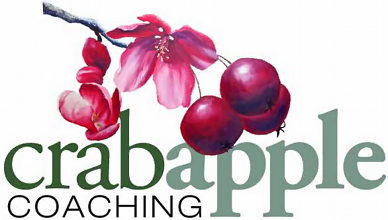 Retirement Stats, Studies, and Stuff
Retirement Stats, Studies, and Stuff
Guest Writer: Lynne Maukonen, MTS, MA, CLC, CPC
Compass Counselling and Coaching Services
I imagine that, during your lifetime, you have often been asked “Who are you?” and “What do you do?” I wonder how much your answers to these two questions have been tied together. For most people, personal identity has a strong connection to what one does – being is linked to doing.
Nowadays, a lot is being written about identity theft. According to the RCMP, identity theft is defined as “the preparatory stage of acquiring and collecting someone else’s personal information for criminal purposes.” Victims of this crime can confirm how frightening it is to become so vulnerable. One of my favourite television serials is CSI: Cyber. It vividly portrays ways by which identity theft can be perpetrated on unsuspecting individuals and organizations.
Though the cause is different, I think that people who have been forced into early retirement or downsized may feel rather like they are victims of identity theft. And people who have consciously chosen their route to retirement may feel like they have given away (at least part of) their identity. Whatever the case, something has changed radically.
When a person retires, she gives up certain things: for example, the routine of a fixed work schedule; the requirement to be at a certain place for a specified duration of time; the expectation of dressing in a prescribed way, perhaps even a uniform; the need to fulfill assigned duties or the normal demands of the job. In retirement, the loss of some of these things might be gladly embraced! BUT. . .
While the advantages of moving into retirement can be numerous and far outweigh the disadvantages, one thing that can be difficult to handle is the resultant change to personal identity.
What is wrapped up in personal identity?
Just what is ‘identity?’ How is it defined? There are various takes on that word, but this contribution from Dictionary.com seems to fit the retirement context very well: “condition or character as to who a person is or what a thing is; the qualities, beliefs, etc., that distinguish or identify a person or thing.”
When we are asked, “What do you do?” the person is often probing about what work we do; how we demonstrate our place or significance in the world. But what then does that look like for a retired person?
Imagine! One of an employee’s final acts on his final day at the workplace might be to hand in his identification card or remove his name plate. When a person retires, he loses his job title – the thing that has defined what he does and how he has been known – Lead Hand, Sales Associate, Vice President Finance, Supervisor, Machine Operator, Manager or whatever.
He also gives up any influence or power attached to that position and the roles he played within the context of his employment. In some cases, there has been a degree of status involved with the position and the feeling of being recognized for achievements. And let’s face it, people often consider their income to be a significant factor in determining who they are.
As we talk about the severity of loss of identity, there is a continuum to consider. It will surely vary greatly from individual to individual depending on things like responsibility, authority, prestige, length of service, job satisfaction, and clarity of future plans. An example would be the person who, today, describes herself as a ‘previously important person.’
What to do if loss of identity threatens?
One thing is to maintain a healthy connection with your former ‘identity’ while moving on to the next. This might be accomplished by remaining a member of a professional association or assuming board or committee responsibilities. Staying connected with former colleagues is sometimes possible through retirees’ associations and some of the social media apps.
Securing your identity
Current popular advice is to plan to achieve or to fulfill one’s identity in retirement. Let’s recognize first, that those who thrived in their careers have gained extraordinary transferable skills. And second, those who have successfully spent years in employment, now have the opportunity to do things they have always wanted to do, to pursue particular passions and personal goals.
If we view retirement less like an end and more like a transition or even a series of transitions, the adjustment will likely be much smoother. Cohen and Schlossberg (2004) have compared retirees to students who come to college – some knowing what they want to do and others not yet knowing. So they use the first year at college as an opportunity to expose themselves to new things. Retirees can choose to approach retirement in the same way, as a liberating time of exploration.
Many working people present their identity succinctly on a 2×3½ inch piece of card – the typical business card. But what happens when that card is no longer valid? When the person no longer has a position or represents a business but is ‘just’ himself? Well, why shouldn’t he have another card to hand out once he is retired? After all, he still has a name, contact information and sometimes a description or ‘identity’ he wants to own and share. Favourite pursuits like golfing or fishing are common themes on such cards. They are bold statements of satisfaction with the new status – Retired and Loving Life!
If you are in a position to plan ahead for your retirement, here are some questions that you could ask yourself to help you secure your identity.
• What value do I bring to those around me?
• What am I passionate about now or have been passionate about in the past?
• If I am not living life to the fullest now, what is missing?
• How much of the ‘me’ that shows up at work every day reflects my true self and the identity at my core?
An important perspective to adopt is that you are retiring to something and not just from something. And make your new focus who you want to be more than what you want to be.
Focusing on whatever you truly want and fully engaging in that – not caring what others think – is an excellent way to keep from the sense of being ‘less than,’ a feeling that can so easily pop up unbidden.
Catherine Frank, Executive Director of the Osher Lifelong Learning Institute at the University of North Carolina, says that applying your expertise to a different arena is a healthy way to view a new life chapter. She offers, “When you take a skill and pursue it in a new way and with a new audience, that’s key to maintaining your identity but also re-envisioning it. If you’re stuck in who you were, it’s hard to see who you can become.” (Consumer Reports, 2015)
The context for trying out something new might be volunteering. The opportunities for that are limited only by your imagination. Mahatma Gandhi had good advice about this: “The best way to find yourself is to lose yourself in the service of others.”
So far we have only touched on who you are and what you are. There is a third matter – why you are – which can be invaluable in helping you clarify your retirement identity.
Life purpose
I doubt if anyone has ever you asked you “Why are you?” But I posit that this is a valid consideration when you are in transition to defining a new identity. Of course, to really make sense, we need to add something else to the question, such as: “Why are you here at this time and place? Why are you the way you are?”
One thing people struggle with a lot is finding purpose or meaning in life. The point of asking the question “Why are you?” is to help you arrive at the real reason why you’re here at all, the very reason you exist.
It has been said that the two greatest days of your life are the day you were born and the day you find out what your purpose is. If you do not believe you have been living out your core purpose in your career, retirement gives you another chance. There are countless online resources and many books to help you work out your own purpose if it is not clear to you right now.
Of course, you may be having difficulty clarifying your new answers to the questions: Who are you? What do you do? and Why are you? If you fear the prospect of losing your identity in retirement or have already found it to be one of the challenges of being retired, then remember that this is not a journey you need to travel alone. You can find numerous resources to support and encourage your pursuit of a new and rewarding identity.
For that in-between time, while you are reinventing yourself and developing your new identity, Dorian Mintzer has a creative way to handle the inevitable “What do you do?” question. She suggests telling anyone who asks that you are ‘temporarily retired’ and then, of course, they will ask what you used to do and, as she says, “Voila, you have your [former] identity back!”
Here are some steps you might like to take to further your journey to self discovery:
• Write out the eulogy that you would like to have read at your funeral.
• List the values that are most important to you now and then prioritize them.
• Document things you always wanted to do but haven’t done so far. Pare that list down to 3 things you can do right now. Create action steps and time line.
The next time someone asks you what you do, your answer can be more than just about what you’re doing or what you used to be. Your response can carry the energy you have about your current passions and where you envision yourself to be headed. That type of response helps us to realize that our identity is as large as life and all of its possibilities.

Wow so nice to see your name Lynne. I have been retired 18 months now and thoroughly enjoying MY time. You are correct that your identity is so tied to your working position and when you are blindsided by the loss of your employment the shock consumes you for some time. I have recreated a new identity through activities, relationships and community contributions and truly love my new life.
Take care
Lovely to hear from you, Barb! You have been much in our thoughts over the past 18 months. My work with an outplacement company brought me into the realm of hundreds of people experiencing sudden, shocking career loss. You’re so right that it can take a long time to get to the point of reinventing oneself! Congratulations on the exciting progress you have made! Please consider connecting through our website – would love to back in touch.